How to get your organizer website to the top of Google search results

This page may contain links to Amazon.com or other sites from which I may receive commission on purchases you make after clicking on such links. Read my full Disclosure Policy
Your website is a big investment, whether you’re spending your hard earned money or blood, sweat and tears. But if you’re counting on your site to generate new leads for your organizing business, there’s still work to be done! “Build it and they will come” just doesn’t apply when it comes to your website. Margo Ovsiienko is back with some excellent tips to help boost your search engine ranking.

Dozens of clients are looking for a professional organizer every day in your area. Getting your page to appear in the top search results on Google offers a chance to reach them for free – without investing in costly ads.
However, getting your page to rank on the top of search results for the keywords that generate leads and sales is not a piece of cake. You will have to introduce some changes to how you write content for your page and even engage a professional developer in the process.
However, SEO optimization shouldn’t scare you – it can also be an interesting adventure from which you can learn a lot. In this article, we share everything you need to know about improving your page SEO to move your page up the ranks.
1. Do keyword research
If you are new to an SEO topic, your writing process probably starts with selecting a few topics that you think can be interesting, writing a brief outline, and then preparing a draft.
In this process, you skip an important stage – checking if there is a demand for your topic online, what way readers search for it, and what has already been published to cover it. As a result, your content doesn’t rank well, because you pick the wrong topic and keyword, and can’t offer readers better content than what they can already find in the top search results.
Next time you write an article, spend some time brainstorming keywords and check their popularity with keyword research tools. For example, you want to write an article on how to choose a professional organizer.
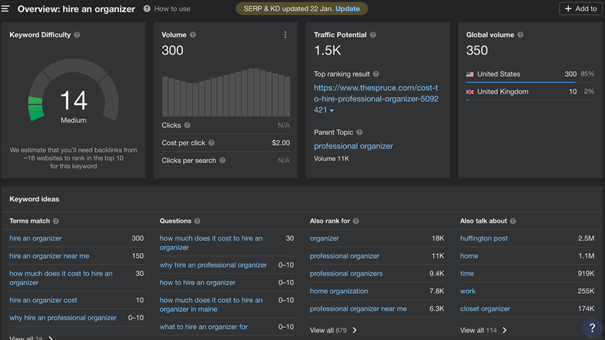
You can type “hire an organizer†in Ahrefs. You can then see several metrics you have to consider:
- an estimated monthly number of searches
- the difficulty to rank on a keyword
- the articles that appear on the top positions in Google search for those phrases
The tool also gives you some suggestions about other related keywords that can become an inspiration for your other articles.
2. Define a seed keyword for each article and page
When you have already collected the ideas for your articles and pages, it’s time to define seed keywords for each article. Seed keywords serve as the main topic for a page, and your page titles and meta descriptions should include them.
Keep track of what seed keywords you use for each page and article, and make sure you use them once to avoid topic cannibalization. You can use an Excel spreadsheet where you can record topics and seed keywords that are associated with them. This way, you will get a better organization of content and your SEO strategy.
3. Analyze your competitors
Once you know the core topic and keyword, it’s time to look up how competitors cover the topic that you are about to write about. For example, with the search “hire an organizerâ€, you would end up with this article on the top search results.

It’s worth looking into the subtopics that they cover. In this case, there are several you should also include in your outline:
- What do professional organizers do?
- How much does it cost to hire an organizer?
- Tips for hiring a professional organizer
You should analyze a few other articles appearing on the first page of search results and think of a way to create a better piece of content than the one present online. You can think of including some infographic, summarizing the tips or expanding the topic a bit more. In brief – you should be looking for the content gaps in your competitors’ content and come up with a plan to cover them.
Remember that apart from writing a great piece of content, you also should get other websites to link to your articles. In this case, you would look into outreaching websites that might find it useful to link to your content. To learn what sites you have to outreach, look into the backlink profile of your competitors and learn where they get their backlinks.
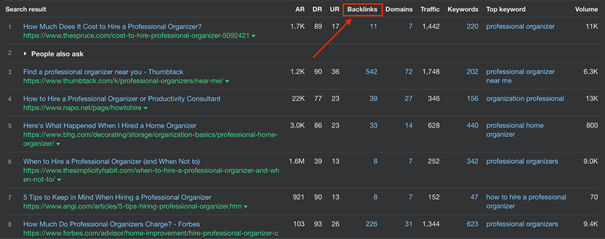
4. Format your posts correctly
Once you have a draft of your article and are heading over to your content management system (CMS) to publish it, it’s time to review your formatting. For writing page and article content, you might be using some online editor such as Google Docs or Word. There, you can easily define your content structure. Hierarchy is important, and to rank higher you have to make it easier for Google bots to understand your content structure better and faster.
That’s where tags help. H1, H2, H3, H4, and other tags are often used to show the hierarchy of content subtopics. H1 tag should be always reserved for your page or article headline – don’t use it across your content more than once. H2 tags are used for the headlines of subtopics within your content, and H3 tags are often used for the following subtopics. You wouldn’t normally go beyond H3 tags – H4, H5, H6 are used very rarely.
Pro-tip: If you haven’t decided what platform you are going to use to publish content, make sure your CMS supports SEO optimization.
5. Write an actionable meta description
It’s unlikely that a meta description is a direct ranking factor. However, it will still help you rank higher in some way, as it has an impact on how often people click on your page in search results. The more people find your meta description interesting, the more often they will click. This action will become a signal for Google that your page is useful for people and should be brought up in the rankings.
The best practices of writing a meta description
Your meta description shouldn’t exceed 160 characters as this is the text length that can usually be displayed to a user in search results.
When writing a meta description remember to include your focus (seed) keyword and simultaneously offer some value to a reader, by showing how your content can help solve their problem or what it can help them achieve. Also, add some call-to-action to entice a reader to click. For the topic of finding a professional organizer, you can write the following meta description including a call to action:

6. Use LSI keywords
Have you ever seen those pages where it seems like a writer has made a huge effort to stuff text with the same keyword? This looks pretty horrible! It makes no sense when you read it and it turns people away.
Keyword stuffing no longer works, if it has ever worked properly! Remember – it’s not Google crawlers that you want to appeal to with your text, but a human being. Over time, Google has improved its algorithms in a way to make keyword stuffing a harmful practice.
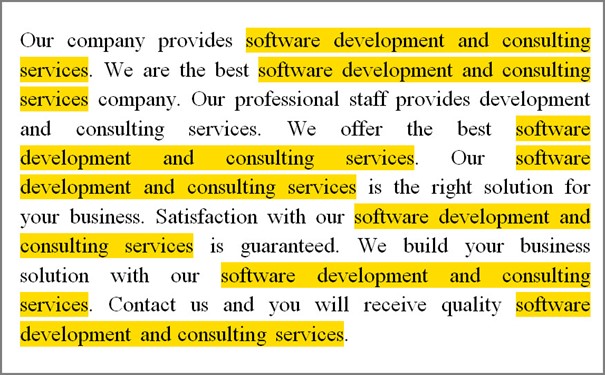
However, using keywords is still extremely important. You just have to do it differently than SEO specialists did two decades ago. Focus on using Latent Semantic Indexing (LSI) keywords – related keywords or synonyms.
Let’s take the example of the phrase “professional organizerâ€. Certified professional organizers, organizing professionals, home organizing professionals are all LSI keywords.
7. Don’t forget about technical SEO
Ranking higher in search results is also connected to getting your technical SEO right. Technical SEO means optimizing your website infrastructure to get it easily crawled and indexed by search engines.
Here are some of the core aspects of technical SEO that you have to fix now.
- Install an SSL certificate that will give your domain an HTTPS status. HTTPS appears in a website secured by an SSL certificate that encrypts the data passed between a website and server.
- Improve your page speed – if your website is slow to load, work on boosting its speed.
- Build a responsive website – make sure your website can be easily accessed and viewed on any device, especially mobile.
- creating an XML sitemap – it helps Google crawlers to index your website faster.
8. Use Google Search Console
You can’t improve what you can’t measure. To track the impact of the introduced changes on the website’s traffic and your position in Google, use Google Search Console.
In the performance report, you can check how users find your website – what keywords they type in Google search, how many impressions and clicks you get online, and your average position in Google search results. You can check this information on every page.
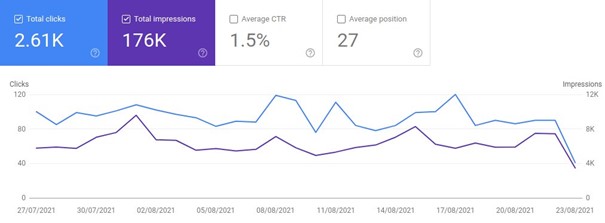
Wrapping up
Getting your page to rank in the top results on Google requires a lot of work in terms of content optimization and improving website performance from a technical side. However, with consistent execution, you will see a positive change, and, hopefully, soon enough, you will notice more leads and sales coming from your website.
Photo © Kayla Butler / Ivorymix
Did you find this post helpful?
Share it with your network, and sign up to get new posts by email every week!




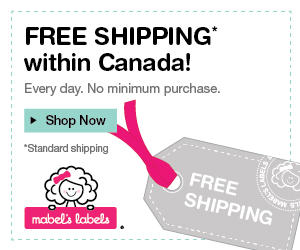






This is so much great content. I think all of these can be helpful, and it is good to stay current if SEO ranking is important to you. It does seem to change over time.
I also think it is wise to decide if this even matters to you. Are you writing to get clients? I get a lot of readers who aren’t ever going to be clients. Does that matter to me?
I’m working on getting better at the meta description – thanks for these tips!!
Those are really good questions, Seana. Although it’s often assumed that the main reason to have a website is to attract potential clients via the search engines, recent conversations with many of my own clients have revealed that’s often not the case. Many have a website simply because it adds credibility – if you’re not online, you don’t exist. Others are open to new business, but are pretty booked up, so spending time on SEO is not a priority, especially if the majority of their business comes from word-of-mouth. There are, of course, many others for whom SEO is very important, some even hiring a specialist to help increase their ranking.
I am absolutely horrible about considering SEO when I write (and I use all the time as my sub-sub topic headers), so no gold stars for me. (And aside from a teeny CTA on my site itself, I rarely reference hiring me anywhere except in my site’s boilerplate.) But I don’t expect my blog posts to yield clients; my geographic area is small and my readership is large. (I still don’t know how I get so many Australian and French readers.) I’m writing because I like to write about these topics, and I like to have content to point my clients and prospective clients to, when they have questions. But ever one of these pieces of advice is essential to understand; you can’t break the rules until you understand the rules, and goodness knows I’ve done my share of breaking rules about which I was clueless in this tech realm.
All of this advice is stellar. Now I just have to apply it! (Especially about my metadescription!)
If you have a lot of international readers that aren’t people you know, you must be doing something right with SEO – how else would they find you? 🙂
Interesting that metadescription keeps coming up here…
I’m sure I could be doing more, or doing it better, based on this post. But all of this seems like way more work than I can manage. I’m easy to find on the Internet and my website gets a lot of activity. Could it be better? Probably. Always more to learn.
Well, that’s the thing, Linda. There is nearly always more you can do, but you have to consider the value of your time versus the benefits you may receive as a result.
Great tips! Allowing enough time to do the keyword research is important. I wish I did that when I started then revisited when I shifted my business. Thanks for sharing.
I suspect that most small businesses don’t do keyword research in the beginning. It’s challenging enough when you’ve been up and running and have some of your own data to review! But I agree, it can be a worthwhile exercise.
Great tips, but sounds a little complicated to me. I’m sure that is why there are professionals to help. I do a little SEO, but sure I could do more.